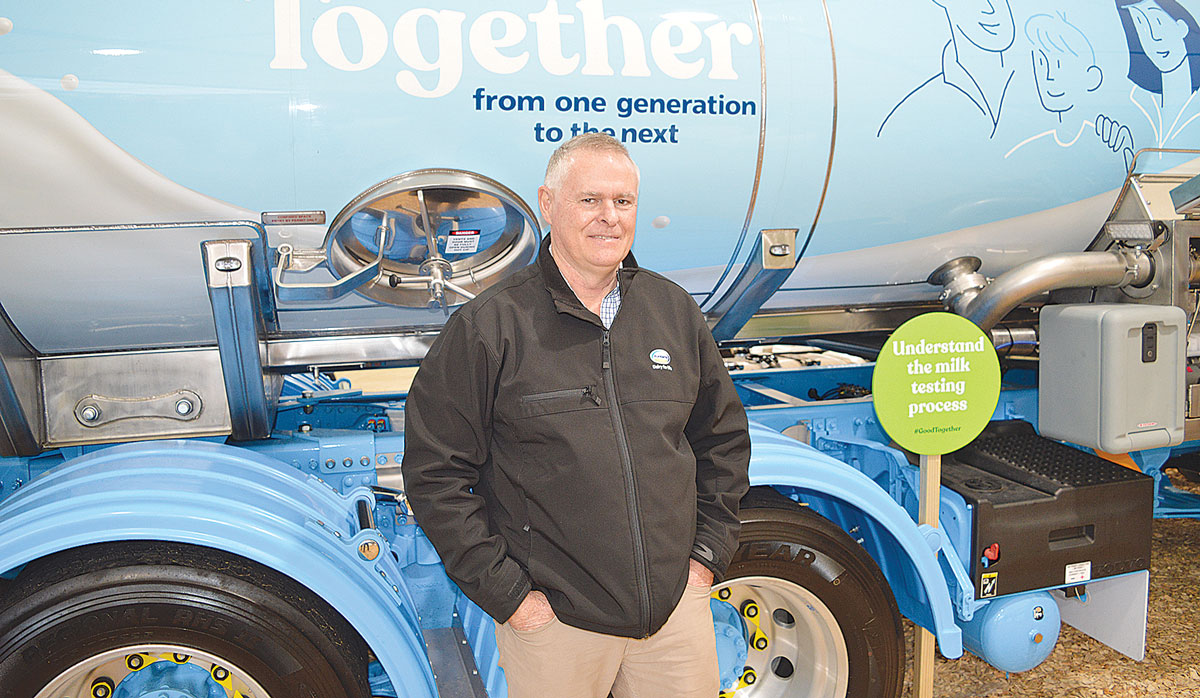Another Windfall for Fonterra Farmers, Unit Holders
Fonterra farmer shareholders and unit holders are in line for another payment in April.
Fonterra shares recorded a jump last week after the co-operative unveiled plans of a $50 million share buyback scheme.
The shares, which can be owned only by farmers, closed last Wednesday at $2.85, up from their record low on $2.22 late last month but down from $4.56 on May 5, 2021.
Chairman Peter McBride said Fonterra has "looked at prevailing prices" alongside the co-operative's strategy and overall business performance.
"The co-op considers the prevailing price, particularly since late April, has undervalued Fonterra shares, which is a key reason for announcing this buyback," McBride says.
The buyback may run for up to 12 months. It is separate from Fonterra's plan to spend $300m on supporting liquidity during the transition to a new requirement for farmers to own one Fonterra share for every 3 kgMS they supply to the co-operative, rather than the current one-for-one ration.
McBride says, in making the decision to buy back shares, the board considered prevailing prices in th Fonterra Shareholders Market (FSM), alongside the co-op's strategy and overall business performance.
"When assessing the value of Fonterra shares the board considers a range of factors, including the strong industry fundamentals and the co-op's long-term strategy and performance targets.
"We also consider the merits of a buy-back alongside other investment opportunities we have in the pipeline.
"These have a range of risk and return profiles, but overall we believe there is room in our portfolio of investments for buying back shares at a price that we consider to be undervalued. Once purchased by the co-op, these shares will be cancelled, which means futur earnings are distributed amongst a lower number of shares."
In an email to farmers, McBride says the co-op will report how many shares it buys and the average price the day after, "so you will know what we have bought".
Keep Buying, Selling
Peter McBride notes that Fonterra is preparing to implement the Flexible Shareholding structure but has not yet set a date for when it will be effective.
In April, the Government announced its support for the structure and has signalled that it expects the amendments to progress through Parliament this year.
 |
|---|
|
Fonterra chairman Peter McBride says the prevailing share price prompted the $50m share buyback. |
"We remind shareholders that even though share compliance obligations remain on hold until at least 6 months after the new structure is effective, shareholders can still buy or sell shares within Fonterra's current constitutional limits (which is generally 1x - 2x supplying shareholders' three-season average milk supply).
"Shareholders should seek advice from their financial advisor, accountant, lawyer, or rural professional before making any decisions," says McBride.
The maximum number of shares that may be acquired pursuant to this buyback programme and the Transitional Buyback (should that also proceed under section 65 of the Companies Act) taken together over the next 12 months is 80,667,893 shares.
This number of shares is set in accordance with section 65 of the Companies Act and represents 5% of Fonterra's shares on issues 12 months prior to the acquisition of shares.
The number of shares purchased under the buyback from time to time, and the average price, will be notified to the NZX and ASX on the business day following the date on which those shares are brought back.
The Meat Industry Association of New Zealand (MIA) today announced that Chief Executive Officer Sirma Karapeeva has resigned from the role.
The winners of the 2026 Hawke’s Bay/Wairarapa Dairy Industry Awards were announced at the annual awards dinner held at Copthorne Solway Park in Masterton on Thursday evening.
Environment Southland is welcoming this week’s decision by the Environmental Protection Authority (EPA) to approve the release of Blaptea elguetai, a leaf‑feeding beetle that will help control the highly invasive Chilean flame creeper.
This March, the potato industry is proudly celebrating International Women’s Day on 8 March alongside the International Year of the Woman Farmer, recognising the vital role women play across every part of the sector — from paddocks and packhouses to research, leadership, and innovation.
Fruit trader Seeka posted a record profit and returns to shareholders in 2025.
Recent weather events in the Bay of Plenty, Gisborne/Tairawhiti, and Canterbury have been declared a medium-scale adverse event.
OPINION: Staying with politics, with less than nine months to go before the general elections, there’s confusion in the Labour…
OPINION: Winston Peters' tirade against the free trade deal stitched with India may not be all political posturing by the…